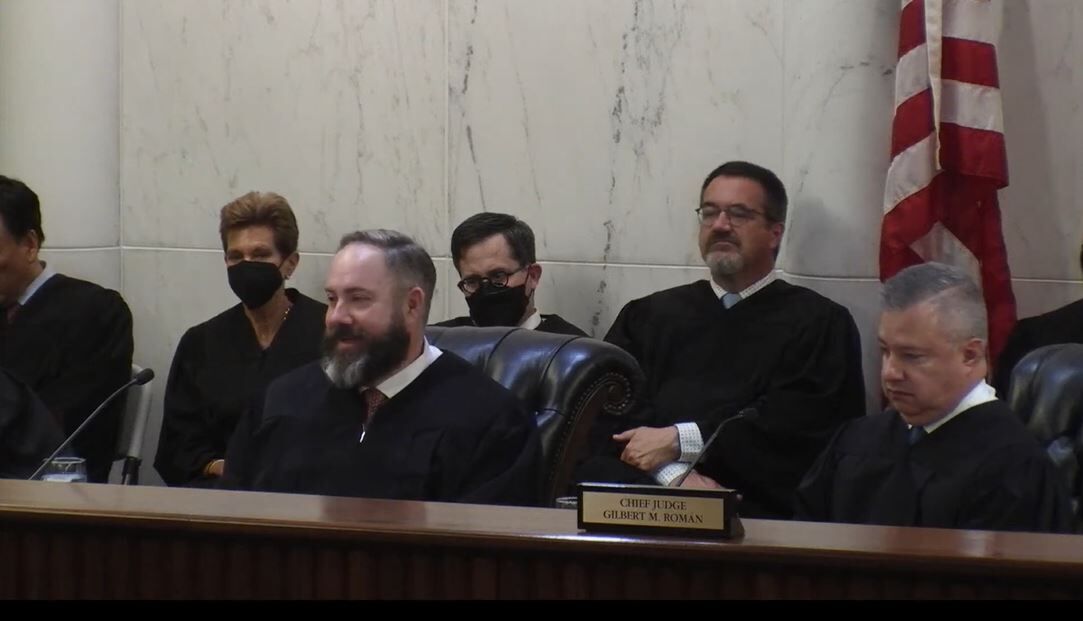Colorado appeals court reiterates fake police personas can be ‘victims’

Fake police personas, used to catch people who lure children over the Internet, count as “victims” and can trigger the requirement to register as a sex offender for life, Colorado’s second-highest court ruled last week.
A three-judge panel for the Court of Appeals declined to part ways with a 14-year-old decision that found the absence of a human victim “does not matter.”
“Here, by interpreting ‘victim’ to include intended fictional victims and thereby placing the focus on the offender’s intent and conduct,” wrote Judge W. Eric Kuhn, “we give proper effect to the legislature’s purpose of providing notice to the community of – and protecting the community from – an offender who would have completed the assault had the victim been real.”
Under Colorado law, defendants may be designated “sexually violent predators” who are typically required to register for the rest of their lives as sex offenders and whose identity is subject to community notification.
A sexually violent predator designation requires, among other things, that the “victim” is a “stranger to the offender or a person with whom the offender established or promoted a relationship” for the purpose of sexual abuse.
Case: People v. Neustel
Decided: June 22, 2023
Jurisdiction: Jefferson County
Ruling: 3-0
Judges: W. Eric Kuhn (author)
Terry Fox
Craig R. Welling
Background: People v. Buerge (2009)
In the case of Zachary Steven Neustel, he exchanged messages over an online app with two 14-year-old girls, pressing them to meet up with him. In reality, the girls were fake profiles created by the Jefferson County Sheriff’s Office. Neustel eventually pleaded guilty to sexual exploitation of a child and attempted child sex assault.
Neustel’s attorney argued he should not be designated a sexually violent predator because the victim was “a persona and not an actual child victim.”
District Court Judge Philip J. McNulty disagreed, reasoning the law did not require an “actual victim” because, “from a defendant’s perspective, defendant didn’t know whether or not this person was a persona or was an actual child.”
Neustel turned to the Court of Appeals, arguing someone who attempts to have sex with an actual child is more dangerous than a person who falls for a “decoy.”
“It’s uncontroversial that, all other things being equal, offenses with real victims are more harmful to society and may warrant different treatment than victimless crimes,” wrote Deputy State Public Defender John Plimpton.
“A defendant whose victim is fictitious is just as dangerous (as) a defendant whose victim is an actual child,” countered Senior Assistant Attorney General Megan C. Rasband in urging the Court of Appeals to uphold Neustel’s sexually violent predator designation.
The appellate panel looked to a 2009 decision, People v. Buerge, which challenged the sexually violent predator law on a similar theory that fake police personas were not the type of victim that could trigger a designation.
In Buerge, the Court of Appeals ruled that it “does not matter that the intended victim was fictional or did not actually exist,” as a defendant’s designation as a sexually violent predator should not hinge on his luck in discovering he was trying to lure a fake child, rather than a real one.
The panel hearing Neustel’s appeal stood by the appellate court’s 14-year-old conclusion. The legislature, added Kuhn in the June 22 opinion, amended the law multiple times since the Buerge decision and it never walked back the Court of Appeals’ interpretation.
Meredith O’Harris, a former public defender now in private practice, criticized the decision for requiring those who engage in “online fantasy” with an undercover officer to face lifetime consequences.
“What’s disappointing about the Court of Appeals’ analysis in this case is that it ignores our legislature’s clear intent to limit the ‘sexually violent predator’ designation to only the most serious sex offenders,” she said. “By ignoring the plain text of the SVP statute – which clearly limits the designation to real victims, not fictional child personas created by the police – the court’s decision will allow more Coloradans to be classified as sexually violent predators where no one has been harmed.”
The case is People v. Neustel.













